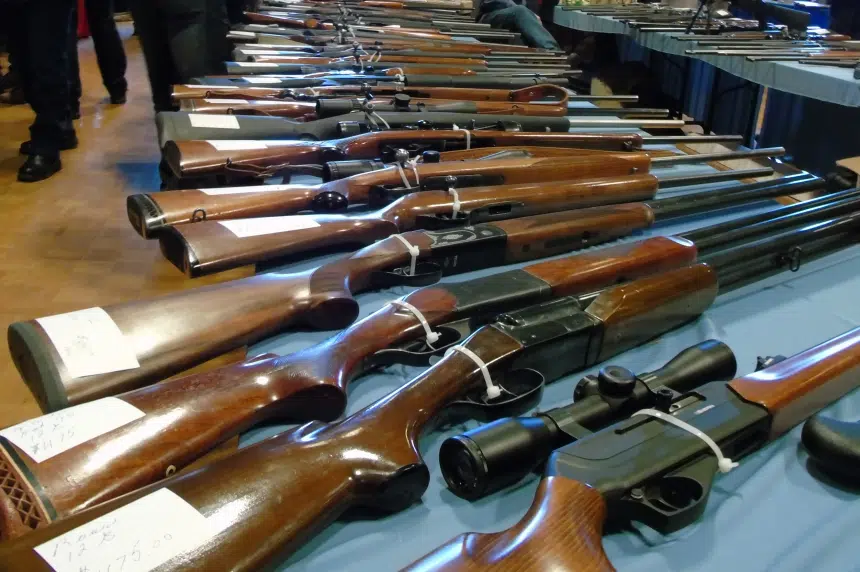The Canadian Sporting Arms and Ammunition Association (CSAAA) is shedding more light on the reason it signed a contract with the federal government to help determine how to compensate retailers who carry banned firearms.
The agreement is part of the first phase of Ottawa’s gun buyback program, which was unveiled Wednesday.
Wes Winkel, the president of the CSAAA, told Gormley on Thursday that the association’s members are stuck between a rock and a hard place.
“We have a situation where we have millions and millions of dollars in inventory that, with the stroke of a pen overnight, we were told we weren’t able to sell,” he said.
“We didn’t have a way to dispose of them, and now for the last three years we’ve been having to store them, pay insurance on them, continue having to deal with government inspections on them, and our dealers are frustrated and tired with the situation.”
Winkel said there is no other option gun shops have to deal with banned guns still in their inventory, and said he felt that if the CSAAA didn’t get involved, the government would’ve just chosen another group.
“We could have said, ‘No, we’re not going to have that discussion and go pound salt,’ ” he added. “We figured it was better to hold our nose and to have the conversation rather than to have something imposed on us that we had no input on.”
The total amount of the contract could reach $700,000, but the president said the CSAAA has received no money from it to date.
Winkel said a massive project like this one cannot be done without funding from the federal government, which will allow the CSAAA to hire employees and pay for office space.
“We’re a volunteer board. We have businesses to run day to day. We cannot be simply taking the time out of our day to organize all this,” he said.
Winkel noted Ottawa still hasn’t told the CSAAA how much it’s willing to pay gun shop owners for the banned firearms.
“It’s a very complex situation. We, of course, are asking for storage charges and insurance charges for storing these things, plus now looking for the rate of inflation,” Winkel said.
“If we had invested that money in other products, we would’ve been profitable on that.”
Winkel said the CSAAA has made it very clear publicly and to federal Public Safety Minister Marco Mendicino that it wants no part in the anticipated buyback of banned guns from private owners.
“We support our consumers’ rights to own these things. We want no part in it at all. We’re just looking to make sure that we have representation on the firearms that are inside of our businesses,” he said. “We have no desire to be collection agents on behalf of the government.”
The CSAAA’s deal with Ottawa has stirred up some turmoil within the association, Winkel noted.
“We’ve had some dissension within the ranks,” he said. “The firearms issue, of course, is an extremely emotional one, and unfortunately because of that some people have used terminology like ‘traitors’ and stuff like that because we’re having conversations with ‘the enemy,’ ” Winkel said.
—With files from The Canadian Press







